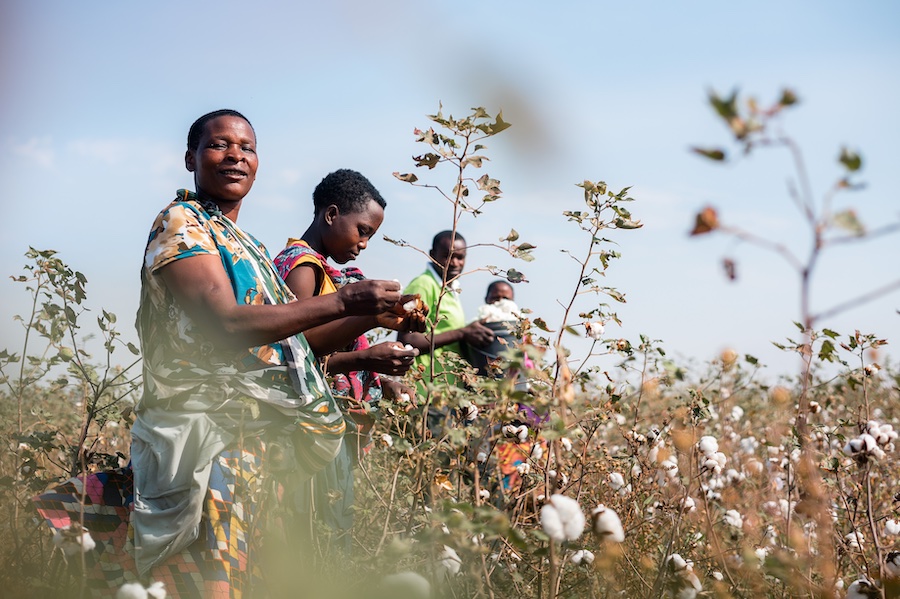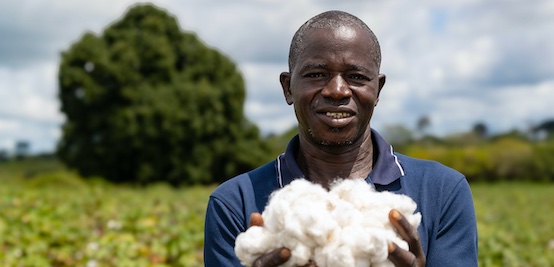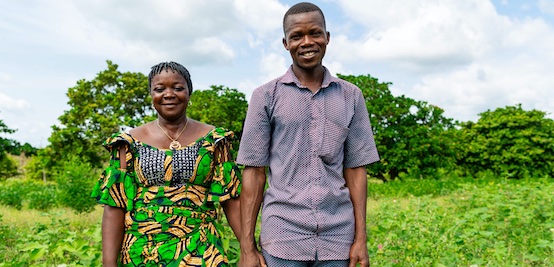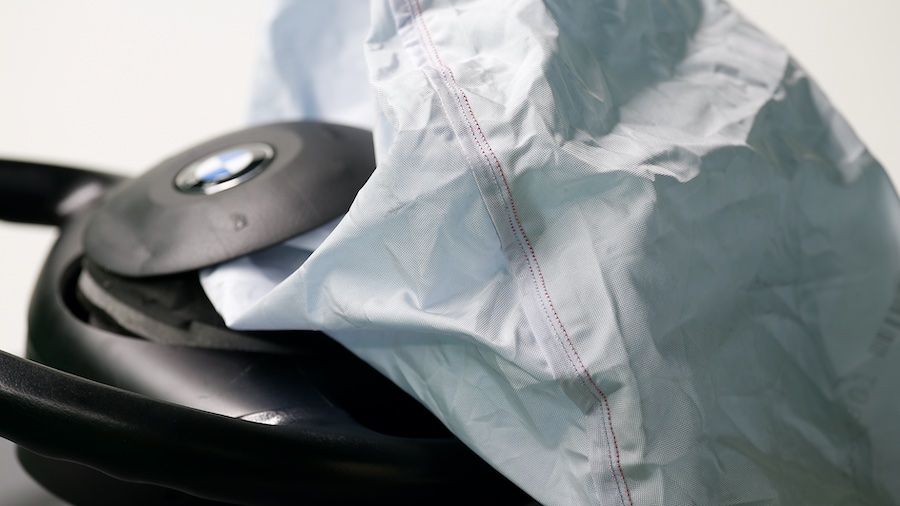#Raw Materials
AbTF publishes independent verification results for Cotton made in Africa’s standards
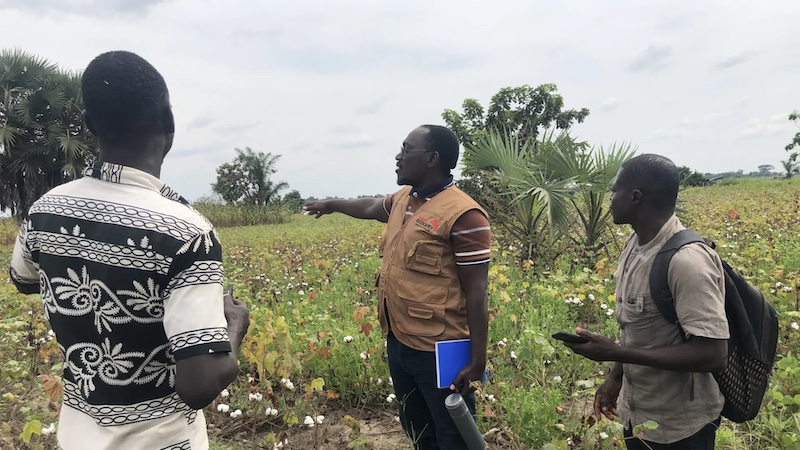
In 2023, 23 verifications were conducted—including 13 at the field level and ten in cotton ginneries (which represent the first step in processing the raw material)—at 20 cotton companies in eleven countries south of the Sahara. Verification results showed that partners had made significant improvements since 2022, for instance earning excellent scores in terms of small-scale farmers’ access to high-quality inputs and to pre-financing for the same as well as in terms of cotton fibre quality. Excellent scores were also awarded for criteria related to transparency in the supply chain, including compliance with traceability requirements for CmiA cotton in the chain, a transparent classification and payment system for seed cotton, and timely payments to CmiA-contracted farmers.
Dignified working conditions and support for small-scale farmers were evaluated as “very good”, due in part to the emphasis placed on protecting the rights and health of employees and labourers through appropriate working hours. Regarding environmental aspects, CmiA cotton continues to be cultivated strictly without genetically modified seeds and without irrigation using surface water or groundwater. “Verifications ensure the credibility of our standards. The latest results clearly show that our close collaboration with local partners, some of whom we have worked with for years, is making cotton cultivation in Africa better and more attractive in the long term. Through our wide and varied training programme, we will continue doing everything we can to build up the adaptability and resilience of small-scale farmers and their systems,” comments Elena Wahrenberg, the CmiA verification manager at the Aid by Trade Foundation.
In the 2022/2023 season, around 900,000 CmiA cotton farmers worked 1.7 million hectares of land in accordance with CmiA or CmiA Organic, producing a total of approximately 508,000 tonnes of ginned cotton for the global textile industry, which is enough cotton for around a billion t-shirts.
In addition to the verification results, the report also focusses on various projects and events through which AbTF worked with verified cotton companies to support small-scale farmers and to implement the standards’ requirements in 2023. For example, the Aid by Trade Foundation increased investment in innovation and communication with the aim of supporting its partners in implementing the standards’ requirements.
Multilateral collaborations—including the recently established Innovations Club, the CAR-iSMa project for promoting adaptation to climate change, and the development of the organic cotton sector in Benin—played a key role in achieving success, as did regional workshops, interdisciplinary professional development activities, and cotton-specific training for farmers. This approach will be maintained in 2024, and investment will be made in further developing communication and training formats in order to sustain and refine the quality of the results. A priority in this regard will be adapting to climate change’s effects on agriculture.
Through regular verifications, independent third parties assess the implementation of the CmiA standards’ requirements in cotton fields and ginneries. The cotton companies that work together with the Aid by Trade Foundation in accordance with the requirements of the CmiA standards commit themselves to engaging in responsible business practices, observing CmiA values, continually improving their CmiA performance, and implementing effective management systems. Their success in upholding these commitments is evaluated by independent third parties on an ongoing basis through the verification process. Following the extensive revision the Cotton made in Africa standard underwent in 2020, the 2023 Aggregated Verification & Implementation Report is the second report to analyse the field- and ginnery-level implementation of CmiA Standard Vol. 4.
https://cottonmadeinafrica.org/wp-content/uploads/Aggregated-Report-2023.pdf



